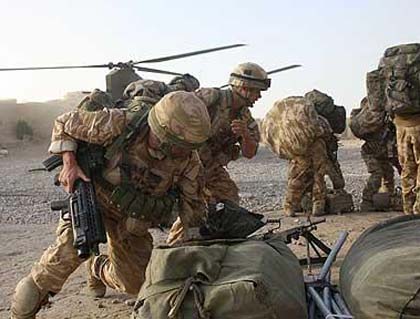The weary war against terrorism that was launched after the incident of 9/11, brought with itself different sorts of influences and impacts on the lives of people in Afghanistan, South Asian region and U.S. in particular and the world in general. The war, though has done much to topple down the Al-Qaida favoring reign of Taliban and has been able to target the mastermind of the incidents of 9/11 - Osama Bin Laden, it has brought with itself a pile of controversies. Even, bearing a lot of medals on its chest, this war is considered to have proved very much lethal in some other ways. The resources that have been used in this war have not been considered to have hit the bull’s eye and the very reason for which the war was started is yet to be achieved even after almost 14 years, when the involved nations of the world seem to be reluctant to continue the war and decided to drag it towards a conclusion.
The growing graph of civilian casualties caused majorly by Taliban raids have been a matter of great concern for Afghans. At the same time, deep concerns on the reconciliation program with Taliban and withdrawal of international troops are present in the minds of Afghans.
The most important pretexts to the war were to put an end to the terrorism in Afghanistan and help it build strong political and economic systems so that it can guarantee its survival on the modern concept of democracy. Both the pretexts are yet to be realized to full extent and the international security forces led by U.S. troops have already announced that they would be withdrawn completely till the end of 2016. Neither the terrorist networks have been eradicated from the region, nor the political and economic systems in Afghanistan are standing on strong footings that can be left alone without much attention and support from international community.
The phenomenon of terrorism has the capacity to grow into strong position from where it is today and can really threaten the region and the world as a whole. Further, this phenomenon is no more an issue only in Afghanistan and has reached to the neighboring countries as well. Pakistan, in this regard, can be named specially. The rise of terrorism in Pakistan has had close connections with the socio-political situation in Afghanistan and even if the situation in Afghanistan is made better in terms of peace and tranquility it is bound to be effected by the changes of phenomenon of terrorism in neighboring Pakistan unless it is dealt as a regional matter. Moreover, the growing insecurity in Pakistan is a threat by itself, as well.
On the other hand the democratization of the political system in Afghanistan is still immature and needs to go a long way before it can reach to a reliable position from where it can start a journey towards real democracy that can penetrate to the grass root level and can deal with the diversity existing in the country. Further, any political agreement with Taliban still remains unattainable and the ongoing peace process also do not seem very much optimistic. Include to all these concerns and ambiguities the untamed corruption in the country that has been paralyzing the governance system and has been hindering the way of the funds and supports from international community to be spent for the welfare and betterment of the common people of Afghanistan. Rather, it has been transferring the money, in some way or the other to those who, directly or indirectly support Taliban and terrorist networks in the country. International community in this regard has shown concerns on various occasions but tangible measures that can really introduce strong system of accountability are yet to be introduced. The economic system has not reached to the level of independence and largely relies on the presence of the foreign troops in some way or the other and serious investment and economic activities are yet to achieve confidence because of shaky situation of markets and the law and order situation.
Though international community has promised that it will be supporting the country even after withdrawal, the economic conditions in the developed nations of the world do not suggest so. They have been going through economic crisis and in few years to come would have to concentrate on their economies to a large extent to compensate for the crisis. But, whether the international community is going to keep supporting Afghanistan financially and militarily largely depends on the decision of the U.S. authorities. Currently, U.S. has been making sure that it would remain engaged in Afghanistan even after 2016.
Definitely, the war in Afghanistan has to be ended decisively and that is what the circumstances in Afghanistan and the neighboring countries are demanding. Both the eradication of terrorism and political and economic stability of country have to be made sure before the war is concluded. Yes, there have been many sacrifices given in this war so far, both in terms of human life and resources, but with a little more effort the outcome of the war can be quite different from what it can turn into if left in the way it is. This war has to be concluded with the victory of peace loving forces against the terror networks, and this is the ethical demand of the war, if there happens to be any ethics in war.
The public trust and support are vital for attaining victory in Afghanistan. The government of Afghanistan and West should work to bring betterment in security condition so that they can boost the level of public trust and support.

